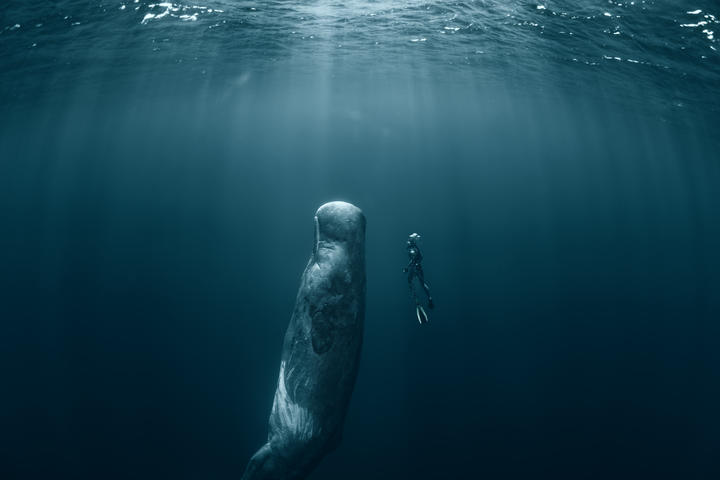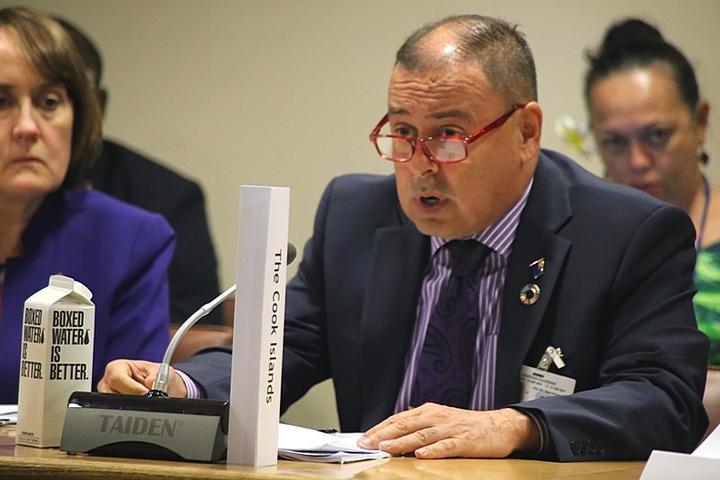Pacific call for a global ban on deep sea mining activity Featured

26 March, 2021. A widespread Pacific civil society call for a global ban on deep sea mining activity has been launched.
The Pacific Regional NGO Alliance of church and civil society groups kickstarted their campaign to stop deep sea mining yesterday in Fiji.
The general secretary of the Pacific Council of Churches, James Bhagwan. Photo: RNZ / Jamie Tahana
Their Blue Line Statement says that as custodians of the world's biggest ocean, Pacific peoples have a moral obligation to protect it against exploitation and destruction.
However, a number of Pacific governments including Cook Islands and Nauru have backed exploration activities by companies spearheading the embryonic deepsea mining sector.
Opening the Blue Line launch, the Secretary General of the Pacific Conference of Churches, Reverend James Bhagwan said governments and companies claiming there would be minimal damage to the ocean from deep sea mining ran the risk of being on the wrong side of history.
"That which is actually know about our ocean depths actually runs contrary to the push for deep sea mining," Bhagwan said.
"Scientists regularly warn against the devastating and irreversible damage to ecosystems and habitats; the resulting biodoversity loss, including of many known endemic species and others yet to be identified, that will be affected and most likely will never recover; the risk of giant sediment plumes travelling beyond the mining sites, smothering and potentially destroying all life forms on the sea floor."
The coordinator of the Pacific Network on Globalization, Maureen Penjueli, told the campaign launch that scientists have given clear warnings about damage to oceans and the link to climate change.
"Recently they warned us about the carbon storage facilities of our ocean floor itself. Recovery of biodiversity destruction would be something that would not happen in human timelines."
She said the Pacific Ocean had long been viewed by external powers as a kind of "anti-space" or void.
"A space in which great tests and experiments have taken place, first for world peace.
"In the past it was used as the proving ground for nuclear weapons. Our people drew a Blue Pacific Line and said never again."
She said the advocates of deep sea mining were now presenting the industry as neccessary for the world's fight against climate change under "false narratives of green technological revolution".

The Deep Sea Mining Campaign warns that if nodule mining is allowed to take place in the Pacific Ocean, species such as the Sperm Whale could be adversely affected. Photo: WILLYAM
Companies such as DeepGreen Metals, which is looking to mine parts of the Pacific, say the world needs polymetallic nodules on the seabed for materials to make batteries for electric vehicles that will drive the carbon-free societies of the future.
Bhagwan described this argument as spurious, saying the minerals needed could be sourced from better recycling efforts and land-based resources.
In a recent inteview with RNZ Pacific, the Cook Islands prime minister Mark Brown denied that his country was gambling with ocean health by opening up for deep sea mining exploration.
Economic strains caused by the pandemic have highlighted the need for Cook Islands to diversify its tourism-reliant economy.
The Cook Islands' roughly two million square kilometres of Exclusive Economic Zone contains an estimated 10 billion tonnes of polymetallic nodules, rich in manganese, nickel, copper, cobalt and rare earth minerals.
Bhagwan noted that decades ago land-based mining also began with promises of economic and social benefits for Pacific people.
"And our lived experiences in the Pacific show clearly that the powerful corporations benefit the most while it is our people who bear the costs of destruction of our natural environment.
"Across resource frontiers of our region, history records this deception time and again."

Cook Islands Prime Minister Mark Brown Photo: Cook Islands Ministry of Foreign Affairs & Immigration
Tuvalu's former prime minister, Enele Sopoaga who attended the online launch, said countries inviting seabed exploration were opening up a huge range of problems for ocean health.
"Soon they will be coming to Tuvalu, especially the vulnerable economies looking for the extra dollar. No. This is not on as long as I am in the parliament of Tuvalu.
"I will use all my energy to stop this mad idea about mining the seabed."
Sopoaga is also calling for an end to the shipment of nuclear waste and disposal of plastics.
- RNZI



